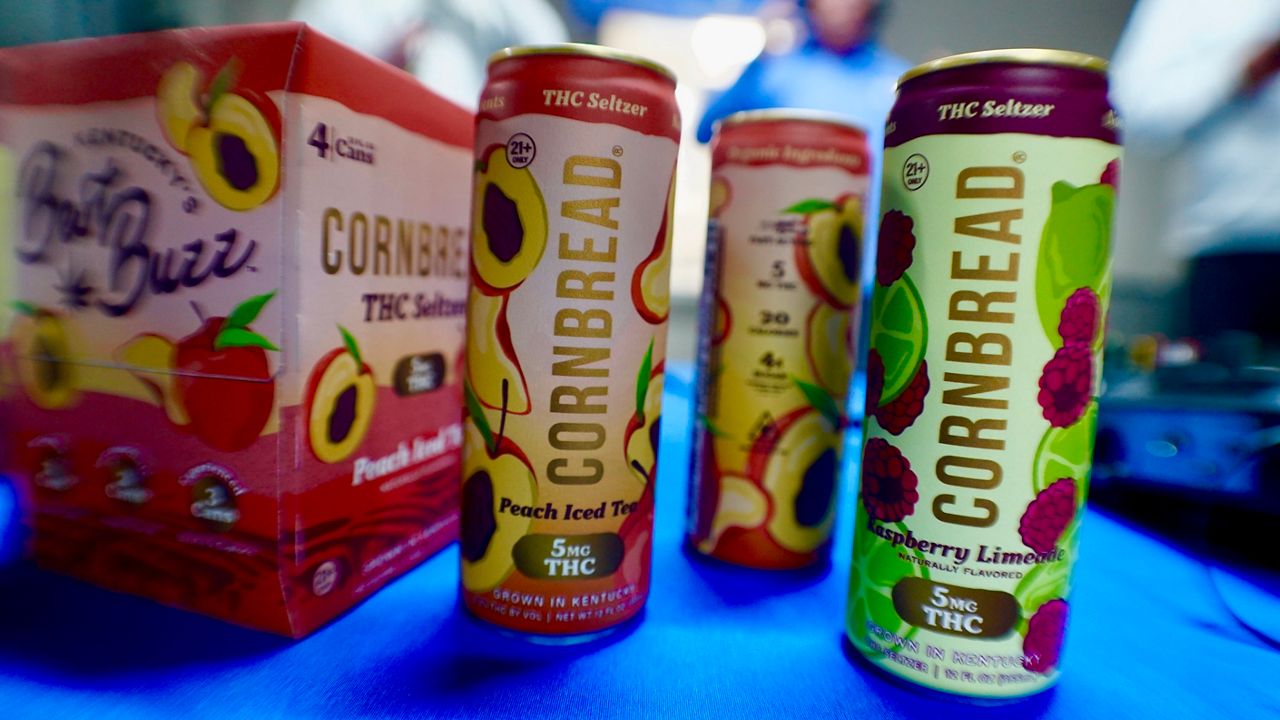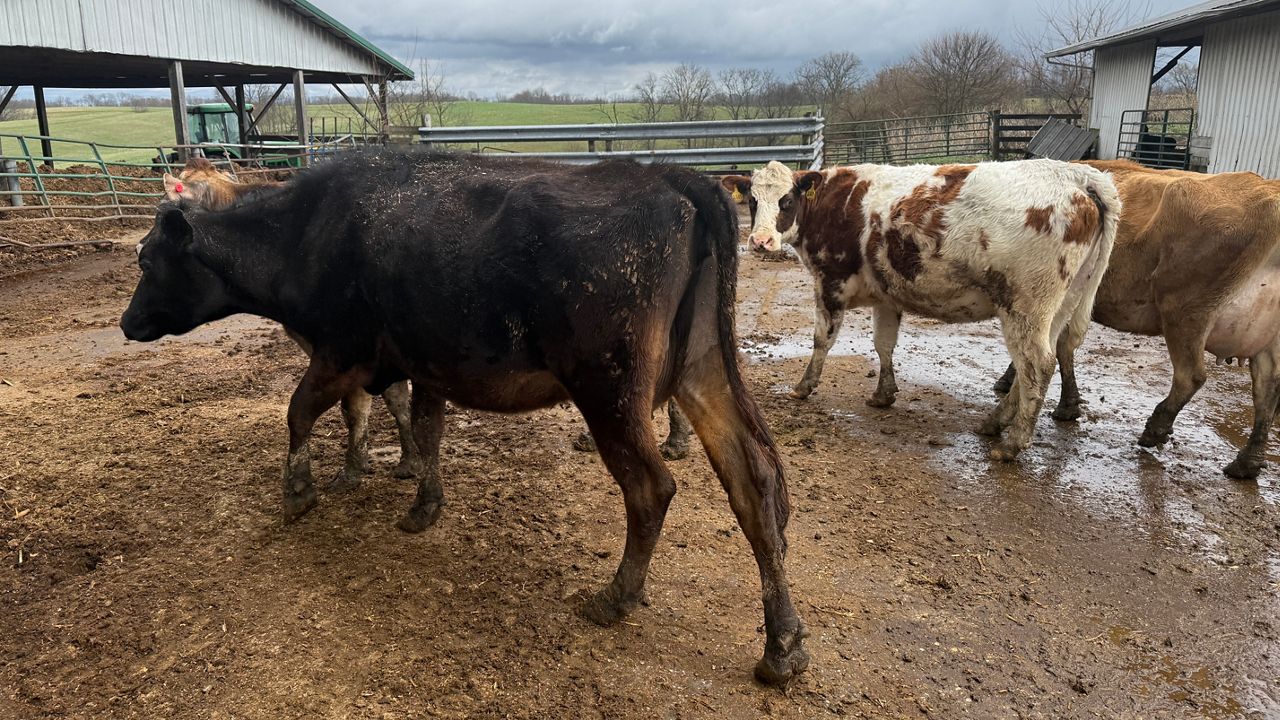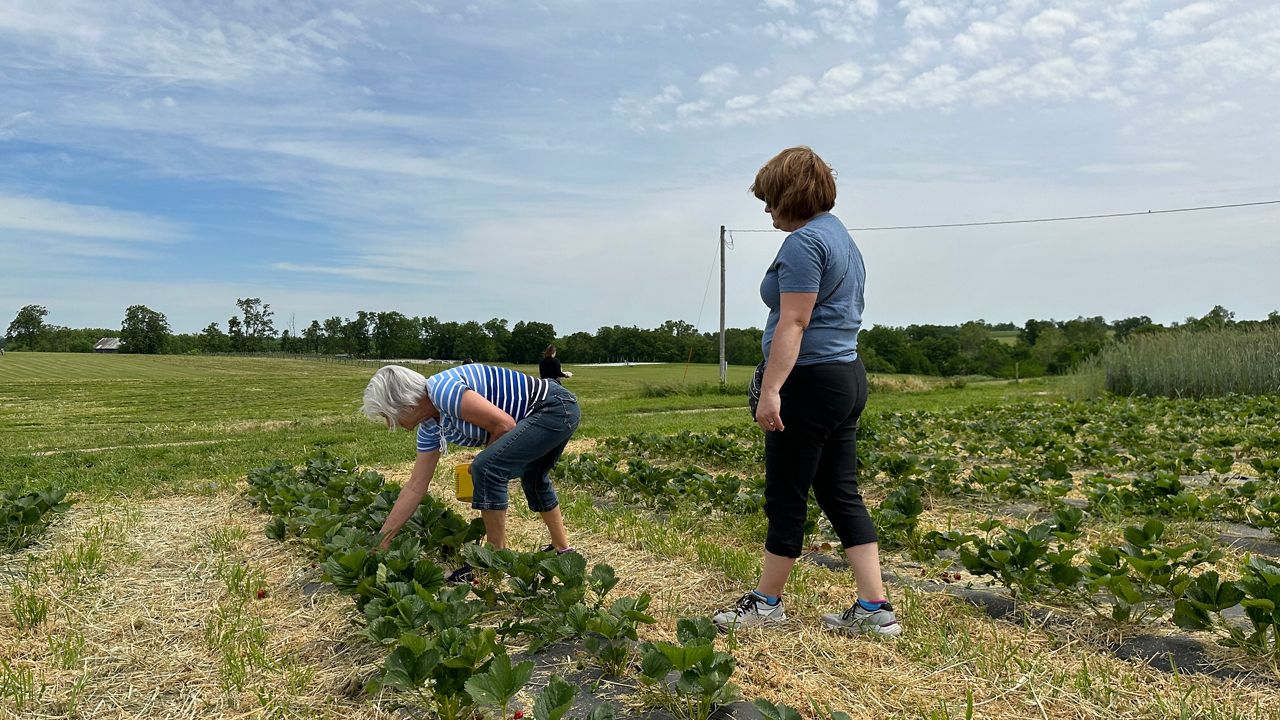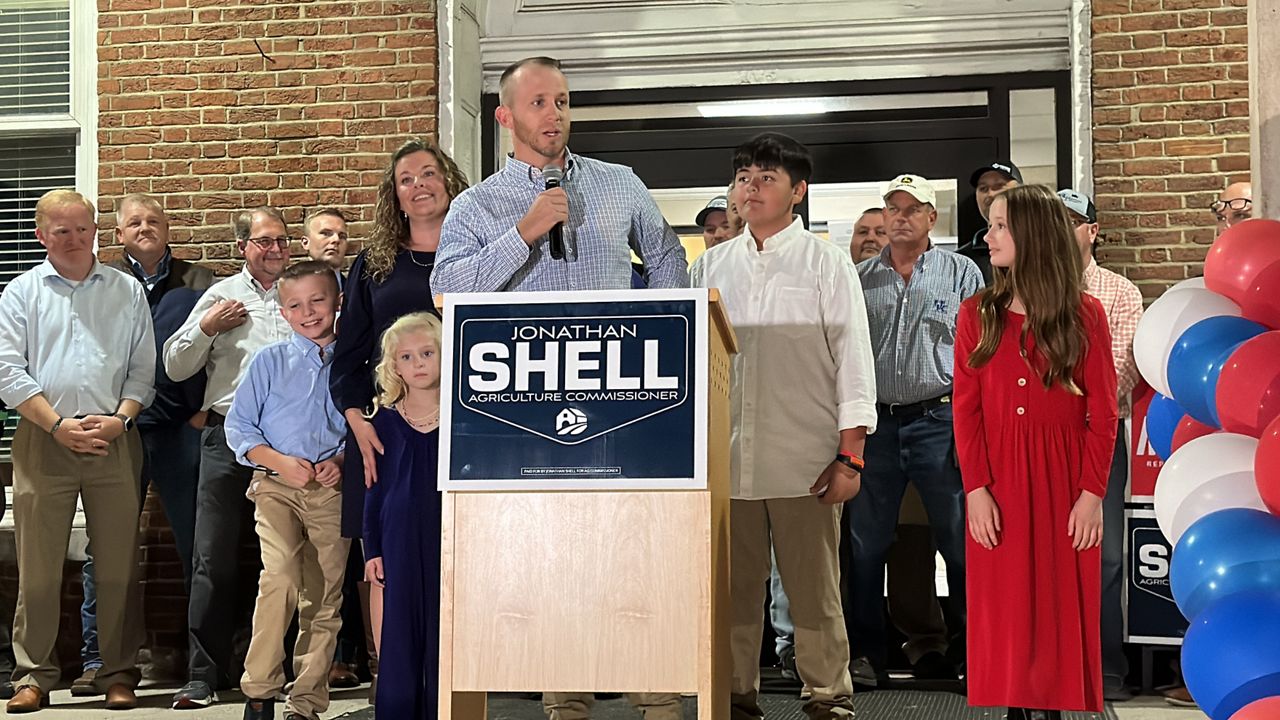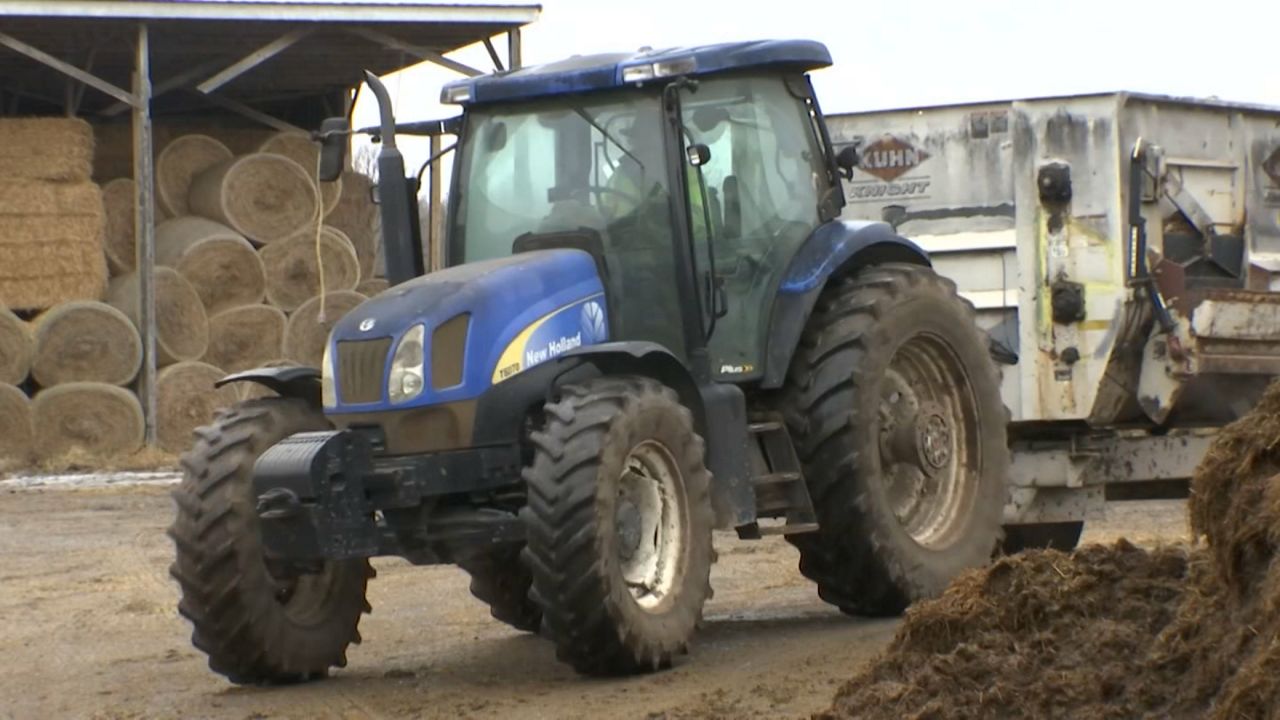KENTUCKY — On this week’s “In Focus Kentucky” program, we’re looking at agriculture across the Commonwealth.
Kentucky is home to a wide variety of agriculture production, from horses and beef cattle to tobacco and corn. And according to recent data, Kentucky is home to more than 69,000 farms from large to small.
Heavy heat and not a lot of rain are not a good recipe for growing crops. A farmer in northern Kentucky says it’s been a rough summer in terms of yield.
Temperatures came close to 100 degrees on the last week of August in Kentucky.
“That field gets 8 to 11 hours of sun a day. And it makes it very difficult for some of these plants to grow to their full size and capacity,” said Doug Bray, owner of the Giving Fields farm in Melbourne. “We’ve never had it this bad. This is our worst year. And I’ve checked with other farmers and other gardeners and other community gardens. And many of them, their tomatoes are down to just half of the original plant.”
Bray said the farm has gotten less than two inches of rain in the last two months.
According to Spectrum News 1 meteorologists, since 1945, this is northern Kentucky’s ninth driest meteorological summer, which runs from June 1 to Aug. 31. Parts of northern Kentucky are in a moderate drought.
“The weather is definitely getting hotter each year,” Bray said.
He said his pepper plants should be 50% bigger and bushier, and the yield is, “probably 50% of what we would normally expect.”
The Giving Fields gives all of its crops away to local food pantries. That takes volunteers, and they’re also affected by the heat.
“It’s very disheartening because they see waste. They see potential that never got to yield a harvest,” Bray said.
The weather is also affecting other farms, and anyone who buys fresh produce at the store is affected, too.
“Bumper years, your price at the Kroger is gonna be less. And when you get to a year like this where supply is on the low end, then the prices go up,” Bray said.
Despite these challenges, the Giving Fields is still sending thousands of pounds of food to help feed hungry families. Bray said he’s grateful to be able to do that, and praying for rain so he can do more.
He said next year he’ll consider growing more crops that hold up better to the heat and dryness such as okra and butternut squash.
You can watch the full In Focus Kentucky segment in the player above.







